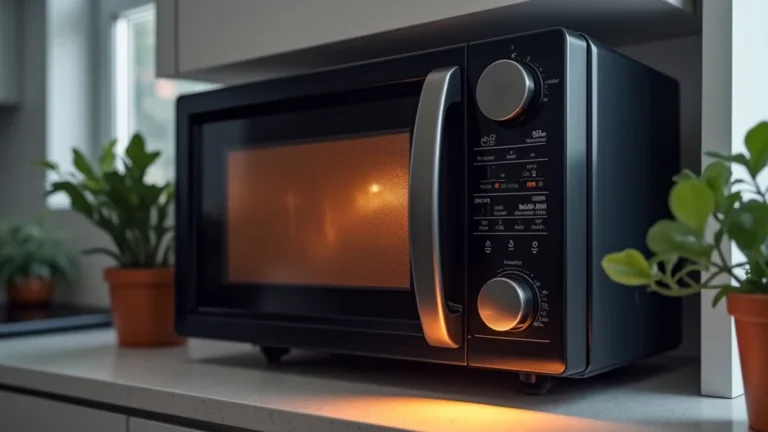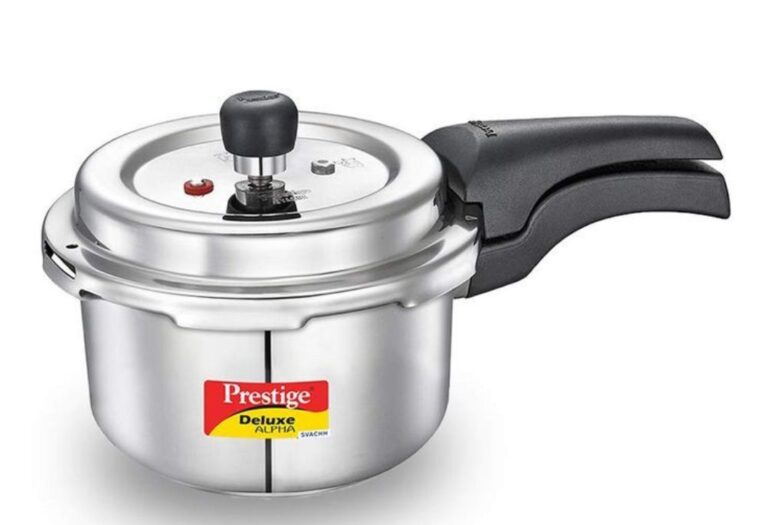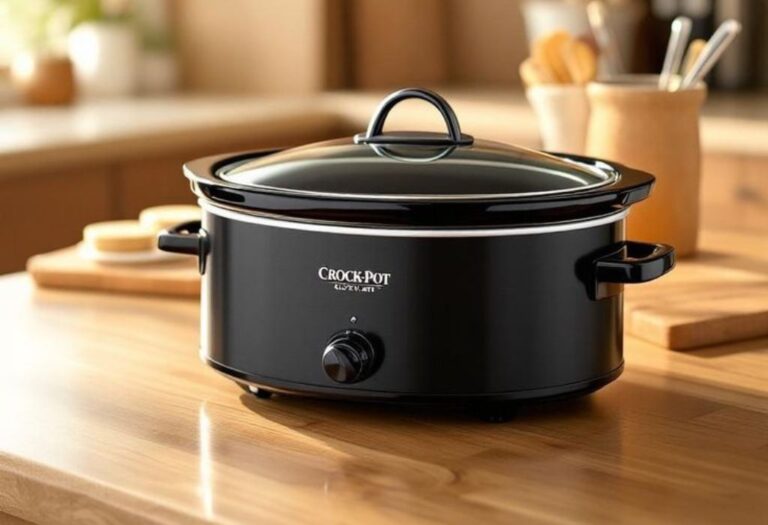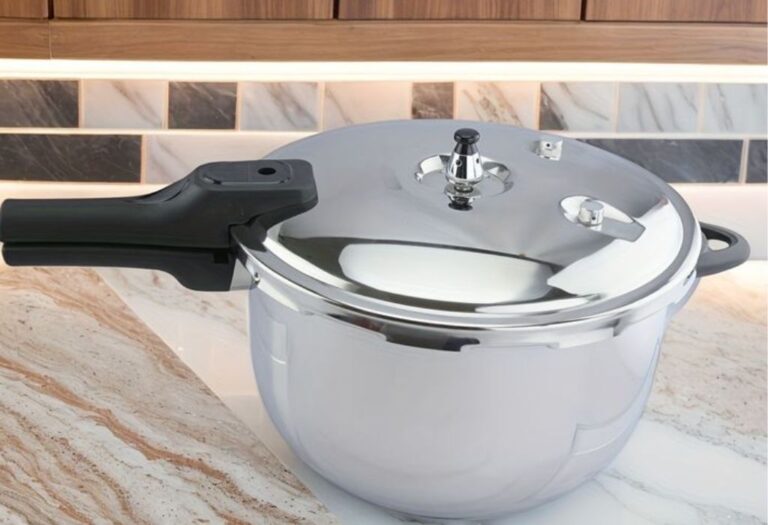A family dinner ends with a load of dishes and a silent dilemma—can enamel cookware go in the dishwasher without damage, or will the beautiful glossy finish fade? That worry can stop a busy cook in their tracks.
This question sparks both curiosity and concern. Home cooks want convenience from the dishwasher yet fear that harsh detergents or repeated cycles may dull enamel or even chip rims. The benefit of clarity is clear cooking confidence paired with long-lasting cookware beauty.
Nearly 54 percent of U.S. households use a dishwasher weekly, so this choice matters for many kitchens. (eia.gov) High wash-cycle temperatures—commonly 120 to 150 °F—can activate abrasive detergents and stress enamel surfaces. (whirlpool.com)
What Enamel Cookware Is (and Why Finish Matters)

Enamel cookware combines a strong metal base, often cast iron or steel, with a smooth, glossy coating of vitreous enamel. This coating is created by fusing powdered glass to metal at extremely high temperatures, forming a durable, non-porous layer.
The finish matters because it protects the metal from rust, prevents food from reacting with the surface, and gives the cookware its signature vibrant colors. A high-quality enamel finish also makes cleaning easier and reduces the need for constant maintenance.
Enamel’s non-reactive nature means acidic foods like tomatoes or citrus will not leach metal flavors or corrode the surface. This makes it a popular choice for slow cooking, braising, and simmering dishes that require consistent heat and long cooking times.
However, the enamel layer can be sensitive to harsh detergents, sudden temperature changes, and abrasive cleaning tools. Repeated exposure to these factors, such as in a dishwasher, may cause dulling, discoloration, or even chips along the rim.
Because many brands label enamel cookware as “dishwasher safe,” understanding the material itself helps explain why manufacturers also recommend gentle care methods. The goal is to balance convenience with preserving beauty and function for decades of use.
Is enamel cookware the same as ceramic?
No. Ceramic is clay-based, while enamel is a glass coating on metal cookware.
What metals are typically used under enamel?
Cast iron and carbon steel are the most common bases for enamel cookware.
Why does the glossy finish matter?
It protects the metal, improves appearance, and prevents food reactions.
Can enamel handle high heat?
Yes, but extreme temperature shocks can cause cracking or chipping.
Does dishwasher use affect the finish?
Yes, repeated cycles may dull the glossy coating over time.
Can Enamel Cookware Go in the Dishwasher? (Direct Answer + Brand Stances)
Enamel cookware can technically go in the dishwasher, but most manufacturers issue cautious guidance. Occasional dishwasher cycles may not harm performance, but frequent washing can dull the glossy finish or cause small chips over time.
Brands like Le Creuset label their enameled cast iron pieces as dishwasher safe, yet they also note that repeated exposure to harsh detergents can affect the exterior shine. Staub follows similar recommendations, allowing dishwasher use but suggesting hand washing for best long-term results.
Other brands such as Lodge mention that enamel cookware can withstand dishwashing cycles but emphasize avoiding citrus-based detergents or aggressive cleaning agents that accelerate wear.
While dishwashers save time, many professionals recommend hand washing when preserving the color, gloss, and lifespan of enamel cookware is a priority.
Statistics show that standard dishwasher water temperatures range from 120–150°F, high enough to activate detergents that may slowly degrade enamel coatings over repeated cycles (Whirlpool).
Is enamel cookware truly dishwasher safe?
Yes, but frequent cycles may cause cosmetic dulling over time.
Do all brands have the same recommendation?
No, some encourage hand washing for lasting beauty, even if labeled dishwasher safe.
What about warranties?
Damage from cosmetic wear is often not covered, so care instructions matter.
Do detergents make a difference?
Yes, citrus-based or highly abrasive detergents are more likely to harm the enamel finish.
Can occasional dishwasher use ruin cookware?
No, occasional cycles are usually fine if the cookware is loaded carefully and dried promptly.
Pros and Cons of Dishwashing Enamel (Convenience vs. Cosmetic Wear)
Dishwashers offer quick cleaning convenience for busy households, making them appealing for heavy cookware like enameled cast iron. They sanitize at high temperatures, save time, and remove stubborn food residues efficiently.
However, frequent dishwashing can dull the glossy enamel surface, leading to discoloration or fading over time. Harsh detergents, especially citrus-based ones, may also damage the coating or expose metal edges on chipped areas.
Some brands highlight the risk of thermal shock when hot cookware meets a cold rinse cycle, which can cause cracks along rims or stress enamel coatings. This risk is higher with older cookware or pieces that have minor chips already present.
Hand washing with mild soap and warm water preserves the finish far longer than constant dishwasher use. For cookware that doubles as a centerpiece on the table, keeping its shine intact matters just as much as functionality.
Ultimately, occasional dishwasher use is safe for most enamel cookware, but regular cycles may shorten its cosmetic lifespan even if cooking performance remains unaffected.
Does dishwasher heat harm enamel coatings?
Over time, high heat and detergents can fade or dull glossy finishes.
Are citrus-based detergents worse than others?
Yes, they are more acidic and can damage enamel surfaces faster.
Can enamel crack in a dishwasher?
Only if exposed to extreme thermal shocks or pre-existing damage.
Will dishwasher use void cookware warranties?
Most brands consider cosmetic dulling normal wear, not a defect.
Does hand washing preserve enamel better?
Yes, gentle hand washing with soft sponges extends enamel’s lifespan.
How to Load and Wash Without Damage

Proper loading and cycle settings can reduce the risk of damage when placing enamel cookware in the dishwasher. Correct placement prevents chipping, scratches, and unnecessary wear from detergent or high heat.
Start by allowing the cookware to cool completely before loading. Sudden temperature changes from stovetop to dishwasher can cause enamel stress or cracking along the edges.
Use the lower rack with stable, wide spacing so the cookware does not bump against other items during the wash cycle. Heavy enamel pieces need sturdy support to avoid contact damage with fragile glassware or sharp utensils.
Select a normal or gentle cycle with moderate temperatures. Avoid sanitizing cycles or heavy-duty settings designed for pots and pans because these typically use hotter water and stronger detergents that can accelerate enamel dulling.
Skip abrasive dishwasher detergents or those containing citrus agents, as they can gradually erode the glossy finish over repeated washes.
Can enamel cookware go in the dishwasher on normal cycles?
Yes, normal cycles are safe if detergent is mild and loading is correct.
Should cookware touch other items?
No, always space cookware so pieces never hit or scrape each other.
Is pre-rinsing necessary?
Yes, remove stuck-on food to prevent redeposit or scratches during washing.
Do heated dry settings harm enamel?
They do not usually harm enamel but can cause spotting if cookware is not dried promptly.
What about older or chipped enamel cookware?
Hand washing is best for cookware with existing chips to prevent worsening damage.
When to Hand-Wash Instead (Protecting Gloss & Color)
Even though enamel cookware can technically handle dishwasher cycles, there are times when hand washing is the better choice. High-quality enamel often has a polished, glossy finish that gradually dulls under repeated exposure to harsh detergents.
Cookware with decorative designs, bright colors, or metallic accents is especially vulnerable to fading in the dishwasher. Hand washing with mild dish soap and a soft sponge keeps the surface looking new for years.
Enamel cookware with wooden handles, vintage pieces, or those showing small chips or cracks should never go in the dishwasher. The combination of heat, moisture, and detergent can worsen existing damage and shorten the cookware’s lifespan.
Hand washing also allows for gentle cleaning of rims and edges where metal may be exposed beneath the enamel layer. Preventing rust formation at these points keeps cookware both functional and visually appealing.
For stuck-on food, a simple soak in warm water with baking soda is enough to loosen residue without the need for abrasive scrubbers or harsh chemicals.
When should enamel cookware always be hand-washed?
If it has wooden handles, decorative finishes, or existing chips.
Does hand washing prevent color fading?
Yes, gentle cleaning preserves the original gloss and vibrant color.
What’s the best way to clean burnt food off enamel?
Soak in warm water with baking soda, then use a soft nylon brush.
Can dishwashers cause rust on exposed edges?
Yes, especially if cookware has chipped rims or is not dried properly.
Do vintage enamel pieces require extra care?
Yes, older cookware often has thinner coatings that need gentle handling.
Care & Maintenance to Extend Life (AEO Checklist)

Proper care keeps enamel cookware looking new and performing well for decades. Consistent maintenance also prevents rust, discoloration, and premature wear caused by harsh detergents or cleaning tools.
Always allow cookware to cool before washing to avoid thermal shock, which can crack or weaken the enamel coating. Sudden temperature changes are one of the most common causes of damage.
Clean cookware with mild dish soap, warm water, and a soft sponge. Avoid steel wool, abrasive pads, or oven cleaners, as these can scratch or dull the glossy surface.
Dry cookware completely after washing, paying close attention to rims and edges where metal might be exposed beneath the enamel layer. Trapped moisture in these areas can cause rust over time.
For storage, place a soft cloth, paper towel, or pan protector between stacked pieces to prevent enamel-on-enamel scratching. This simple step preserves both appearance and longevity.
What cleaners are safe for enamel cookware?
Mild dish soap and warm water are safest for everyday use.
Can enamel cookware be soaked overnight?
Yes, soaking helps loosen stuck food, but avoid harsh chemical cleaners.
Do dishwashers shorten cookware lifespan?
Repeated cycles may dull color and gloss, especially with strong detergents.
Is it necessary to dry enamel cookware immediately?
Yes, drying prevents rust formation on exposed edges or seams.
Can chipped enamel cookware be repaired?
Minor chips can be sealed with enamel repair kits, but larger damage needs professional care.
Conclusion
Enamel cookware can go in the dishwasher occasionally, but hand washing remains the best way to protect its glossy finish, vibrant colors, and long-term durability. Frequent exposure to high heat, harsh detergents, and contact with other items can dull the surface and weaken its enamel coating over time.
Following manufacturer guidelines, avoiding citrus-based detergents, and loading cookware carefully can minimize risks when using the dishwasher. However, for vintage pieces, cookware with wooden handles, or those already showing chips or cracks, gentle hand washing is the safest option.
Ultimately, the right care routine balances convenience and preservation. Treating enamel cookware properly ensures it stays beautiful, functional, and safe for many years of cooking and serving.
I’m Emma J. Caldwell, the founder, lead writer, and home-cooking enthusiast behind KitchenGuideCo.com. With a background in culinary arts and over a decade of cooking experience in both professional and personal kitchens, I created this platform to demystify recipes, offer smart kitchen gadget reviews, and guide readers through meal prep with confidence and clarity.





